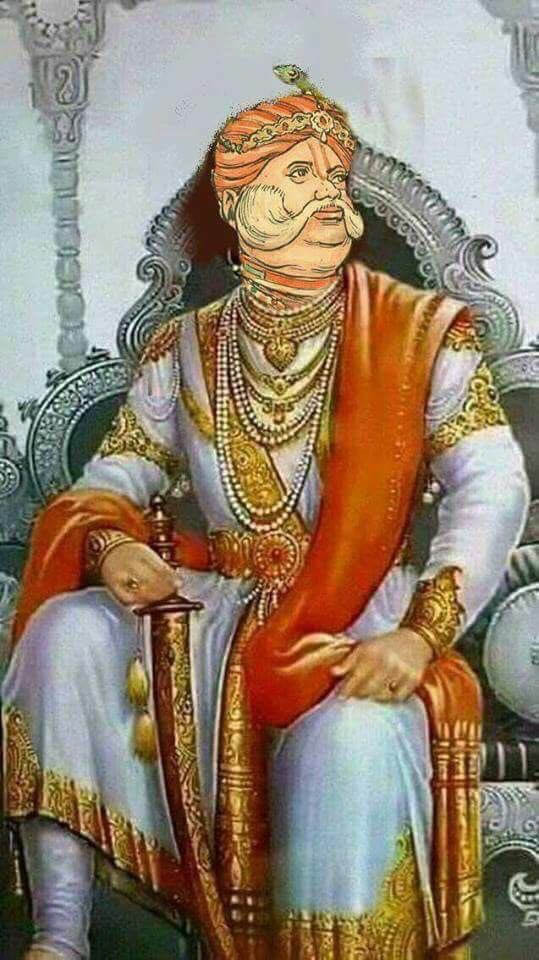Indian History
Maharaja Surajmal
- 14 Feb 2022
- 6 min read
For Prelims: Maharaja Surajmal, Third Battle of Panipat.
For Mains: Maharaja Surajmal, Role of Important Personalities, contribution of Maharaja Surajmal.
Why in News?
Recently, the Prime Minister has paid tributes to Maharaja Surajmal on his Jayanti.
Who was Maharaja Surajmal?
- He ruled in the 18th century and was the son of the Jat chieftain Badan Singh.

- He was a great leader, a great fighter, a great diplomat and a great statesman of his time.
- He was described as "the Plato of the Jat people" and by a modern writer as the "Jat Odysseus", because of his political sense, steady intellect and clear vision.
- He united various factions of Hindus and Muslims and kept them together.
- He took care of the historical monuments built by the kings of other religions and employed people according to their abilities in higher posts, irrespective of their races.
- He believed that humanity is the only religion of man.
- He visualized “India as one nation” and devoted his life in forging national integration.
- Maharaja Surajmal considered farmers as the most important section of the society and had a lot of respect for them.
- He personally identified the problems of the farmers and introduced reforms to rectify them.
- Some institutions that have been named after him include the Maharaja Surajmal Institute of Technology and Maharaja Surajmal Brij University, Bharatpur.
- It is believed that the Maharaja died in battle in December of 1763 beside the Hindon river, after being ambushed by the army of Mughal chief Najib-ad-Dawlah.
What about the Military Career of Maharaja Surajmal?
- He had a good relationship with Maharaja Jai Singh of the princely state of Jaipur.
- After the death of Jaisingh, his sons Ishwari Singh and Madho Singh started fighting over the princely status as the heirs.
- Surajmal wanted to make the elder son Ishwari Singh the next heir of the princely state, while Maharana Jagat Singh of Udaipur state was in favor of making the younger son Madho Singh the King.
- In the event of this difference, the fight over the throne started. Ishwari Singh won the struggle in March 1747. The battle did not completely end here.
- Madho Singh returned to the battlefield with the Marathas, Rathores, and Sisodia Kings of Udaipur. In such an environment, king Surajmal reached the battlefield with 10,000 soldiers to support Ishwari Singh.
- In this war, Ishwari Singh was victorious and he got the royal text of Jaipur. After this battle, the dunk of Maharaja Surajmal started ringing all over India.
- Later on 1st January 1750 Maharaja Surajmal crushed the Mughal army of Salabat Khan and forced the latter to accept all his terms.
- Later during the civil war among the Mughal Maharaja Surajmal plundered old Delhi in support of Safdar Jung.
- By 1753, Maharaja Surajmal had extended his jurisdiction to Delhi and Feroz Shah Kotla. Angered by this, the Nawab of Delhi, Ghaziuddin instigated the Maratha chieftains against Surajmal.
- The Marathas attacked Bharatpur. He surrounded the fort of Kumher for several months.
- The Marathas could not capture Bharatpur in this attack, but they had to pay the price of this attack in the form of the death of Khanderao Holkar, son of Maratha Sardar Malharrao. After some time the Marathas made a treaty with Surajmal.
- Surajmal had built the impregnable Lohagarh Fort, which the British could not penetrate even after attacking 13 times.
- This is the only fort in the country, which has always been impenetrable.
What is the relation between Maharaja Surajmal and the third Battle of Panipat?
- The Third Battle of Panipat was fought between the Marathas and the invading armies of Afghan general Ahmed Shah Abdali in 1761.
- The battle, fought about 90 km north of Delhi, was won by the Afghans and left about 40,000 troops of the Marathas dead.
- Maharaja Surajmal was among those who played key roles in the battle.
- After the battle, the Marathas lost their preeminent position in north India, which ultimately paved the way for British colonial powers to take over.




